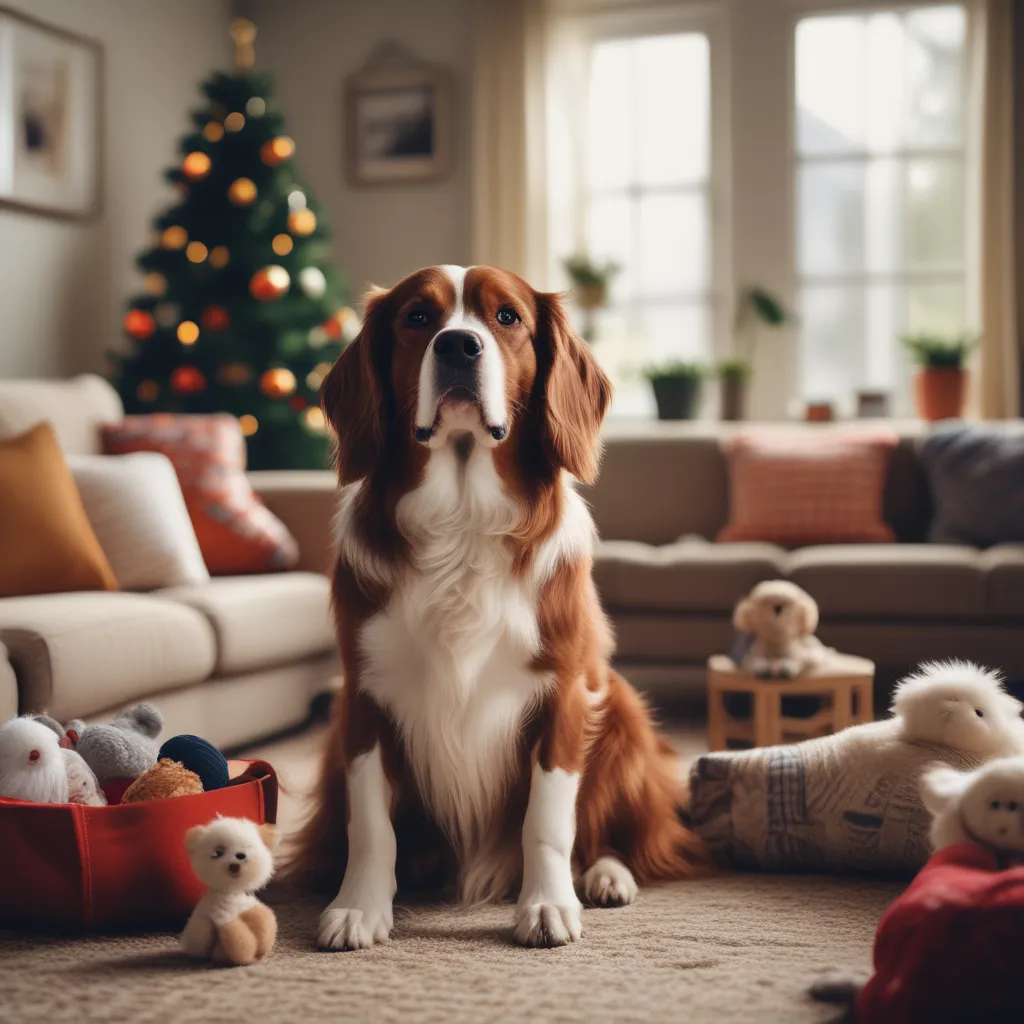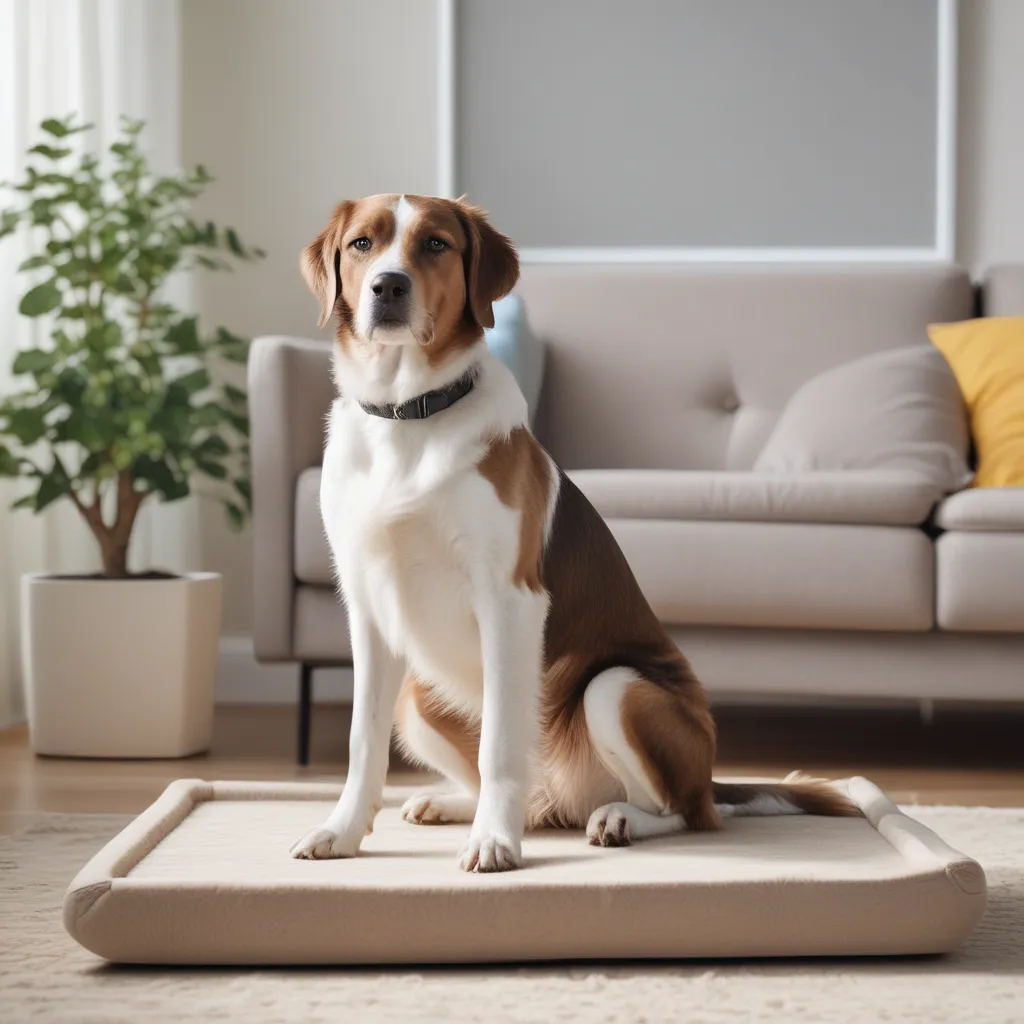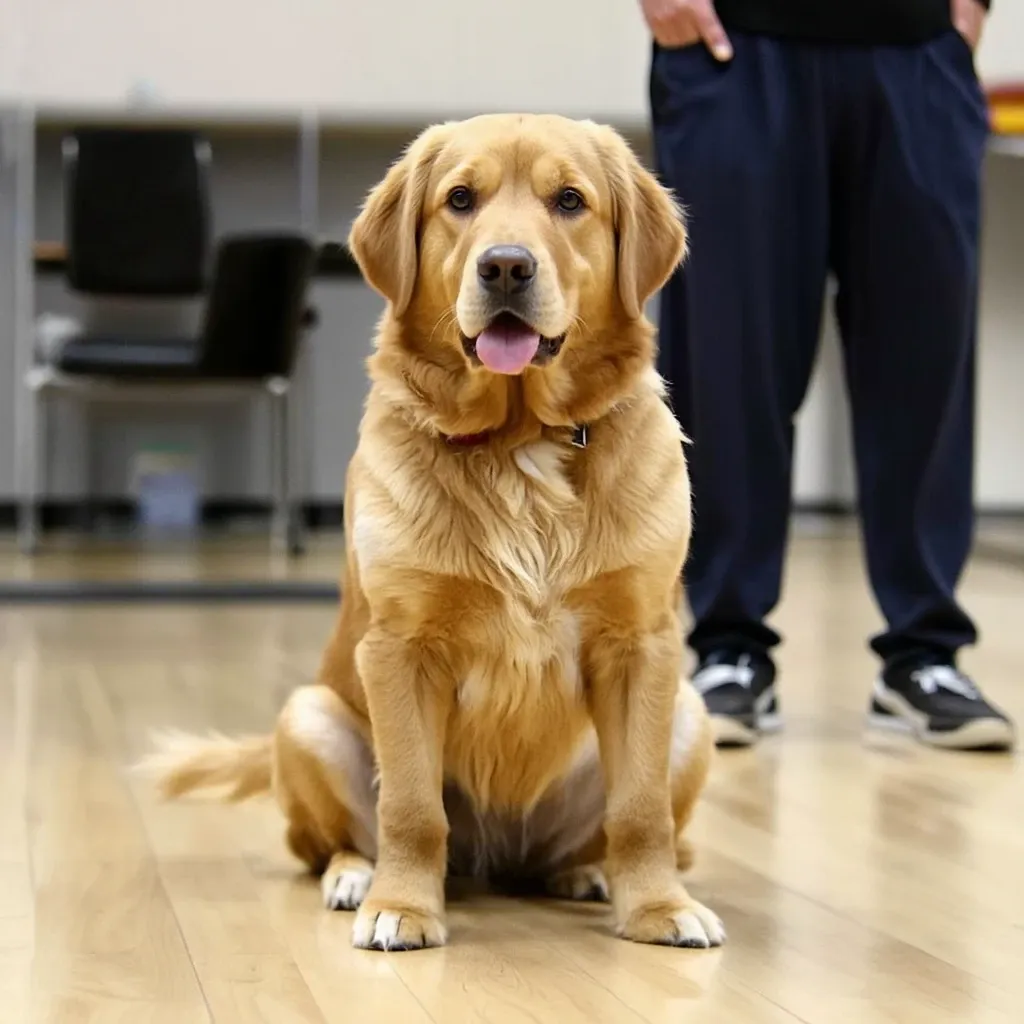Introduction
Are you thinking of adding a furry friend to your family? With so many dog breeds out there, it can be overwhelming to decide which one is the best fit for your home. A good dog breed should be more than just a companion – it should be a part of your family. But what makes a dog breed suitable for a home?
When choosing a dog breed, it’s essential to consider several factors, including your lifestyle, living situation, and the amount of time you can dedicate to your dog’s care and attention. Some breeds are better suited for families with small children, while others are more suitable for singles or couples who live in apartments.
In this article, we’ll explore the key characteristics of a good dog breed for a home, help you choose a breed that’s suitable for your lifestyle, and provide you with a list of the best dog breeds for homes with small spaces and families. We’ll also delve into understanding dog temperament and energy levels, and provide tips on ensuring your dog’s adaptability to your home environment.
Whether you’re a seasoned dog owner or a first-time fur parent, this article will provide you with the information you need to make an informed decision when choosing the best dog breed for your home.
Key Characteristics of a Good Dog Breed for a Home
When it comes to finding the perfect dog breed for your home, there are several key characteristics to consider. A good dog breed for a home should be intelligent, loyal, and affectionate. They should also be easy to train and adaptable to living in a small apartment or house.
Some of the best dog breeds for homes include the Labrador Retriever, Shih Tzu, and Dachshund. These breeds are known for their intelligence, loyalty, and affectionate nature, making them perfect for families and individuals alike.
Intelligence
A good dog breed for a home should be intelligent and easy to train. This means they should be able to learn basic commands and behaviors quickly and easily. Breeds like the Labrador Retriever and Dachshund are highly intelligent and responsive to training.
Loyalty
A loyal dog breed is essential for a home. They should be devoted to their family and protective of their territory. Breeds like the Labrador Retriever and Irish Setter are known for their loyalty and make great family dogs.
Affectionate Nature
A good dog breed for a home should have an affectionate nature. They should be loving and gentle, making them perfect for families with children. Breeds like the Shih Tzu and Labrador Retriever are known for their affectionate nature and make great companions.
Adaptability
A good dog breed for a home should be adaptable to living in a small apartment or house. They should be able to thrive in a variety of living situations and be comfortable in small spaces. Breeds like the Dachshund and Shih Tzu are perfect for small apartments and homes.

In conclusion, a good dog breed for a home should be intelligent, loyal, affectionate, and adaptable. Breeds like the Labrador Retriever, Shih Tzu, and Dachshund make great companions for families and individuals alike.
Choosing a Dog Breed Suitable for Your Lifestyle
Choosing the right dog breed for your lifestyle is crucial to ensure a happy and healthy relationship between you and your furry companion. With so many breeds to choose from, it can be overwhelming to decide which one is the best fit for you. Here are some essential factors to consider when selecting a dog breed that suits your lifestyle.
Consider Your Living Space
Whether you live in an apartment or a house, the size of your living space plays a significant role in determining the right dog breed for you. If you live in a small apartment, a smaller breed that requires less exercise and space would be a better fit. On the other hand, if you have a large house with a yard, a larger breed that needs more space to run around would be more suitable.
Think About Your Activity Level
Your activity level is another crucial factor to consider when choosing a dog breed. If you are an active person who enjoys outdoor activities, a high-energy breed that requires regular exercise would be a great match. However, if you have a more sedentary lifestyle, a lower-energy breed that requires less exercise would be a better fit.
Size Matters
The size of the dog breed is also an essential factor to consider. Larger breeds require more space, food, and exercise, while smaller breeds require less. If you have a small living space, a smaller breed would be a better fit.
Grooming Needs
Some dog breeds require a lot of grooming, while others require very little. If you don’t have a lot of time to dedicate to grooming, a breed with low grooming needs would be a better fit.
Family-Friendly
If you have a family with young children, you’ll want to choose a breed that is family-friendly and gentle. Some breeds are better suited for families with children, while others are better suited for single people or couples.
Energy Levels
The energy level of the dog breed is also an essential factor to consider. If you have a high-energy lifestyle, a high-energy breed would be a great match. However, if you have a low-energy lifestyle, a lower-energy breed would be a better fit.
Temperament
The temperament of the dog breed is also crucial to consider. Some breeds are more aggressive, while others are more gentle. If you have a family with young children, you’ll want to choose a breed with a gentle temperament.
By considering these essential factors, you can choose a dog breed that is well-suited to your lifestyle and living situation. Remember, choosing the right dog breed is a big decision, and it’s essential to take your time and do your research.

Best Dog Breeds for Homes with Small Spaces and Families
When it comes to choosing the perfect furry companion for your family, it’s essential to consider the space you have available. Not all dog breeds are suitable for small homes, but there are many that thrive in compact environments. Here are some of the best dog breeds for homes with small spaces and families:
1. Bichon Frise
The Bichon Frise is a playful, gentle, and adaptable dog breed that requires moderate exercise. They are perfect for small homes with families, as they are easy to train and love human interaction.
2. Cavalier King Charles Spaniel
The Cavalier King Charles Spaniel is a friendly, gentle, and affectionate dog breed that is ideal for families with small children. They require moderate exercise and are relatively low-maintenance.
3. French Bulldog
The French Bulldog is a laid-back, playful, and adaptable dog breed that is perfect for small homes. They require minimal exercise and are relatively low-maintenance.
4. Havanese
The Havanese is a friendly, outgoing, and intelligent dog breed that is ideal for families with small children. They require moderate exercise and are relatively low-maintenance.
5. Maltese
The Maltese is a gentle, playful, and affectionate dog breed that is perfect for small homes. They require minimal exercise and are relatively low-maintenance.
6. Poodle
The Poodle is a intelligent, active, and loyal dog breed that is ideal for families with small children. They require regular exercise and grooming.
7. Shih Tzu
The Shih Tzu is a friendly, outgoing, and loyal dog breed that is perfect for small homes. They require minimal exercise and are relatively low-maintenance.
8. Yorkshire Terrier
The Yorkshire Terrier is a spunky, curious, and affectionate dog breed that is ideal for families with small children. They require moderate exercise and are relatively low-maintenance.
When choosing a dog breed for your small home and family, it’s essential to consider factors such as energy level, grooming needs, and training requirements. By choosing a breed that is well-suited to your lifestyle, you can ensure a happy and harmonious home for both your family and your furry friend.
Understanding Dog Temperament and Energy Levels
When it comes to choosing the perfect furry companion for your home, understanding dog temperament and energy levels is crucial. A dog’s temperament and energy level can greatly impact their adaptability to your lifestyle and living situation.
What Determines a Dog’s Energy Level?
A dog’s energy level is influenced by various factors, including their breed history, individual temperament, and age. Breeds that were originally bred for working or herding, such as Border Collies and Australian Shepherds, tend to have higher energy levels due to their historical roles requiring physical and mental engagement.
High-Energy Breeds
Some dog breeds are naturally more energetic than others. These breeds require regular exercise and mental stimulation to prevent boredom and destructive behavior. Examples of high-energy breeds include:
- Labrador Retrievers
- Irish Setters
- Australian Shepherds
- Border Collies
Low-Energy Breeds
On the other hand, some dog breeds are content with shorter periods of play and prefer leisurely walks. These breeds are perfect for those seeking a more relaxed companion. Examples of low-energy breeds include:
- Bulldogs
- Chow Chows
- Pugs
- Shih Tzus
- Basset Hounds
Understanding Your Dog’s Temperament
A dog’s temperament is their personality and behavior. It’s essential to understand your dog’s temperament to ensure a harmonious relationship. Some key characteristics to look for in a dog’s temperament include:
- Friendliness: A friendly dog is approachable and outgoing, making them an excellent pet for families with children.
- Loyalty: A loyal dog is devoted to their family and can become protective if they feel their family is being threatened.
- Energy level: A dog’s energy level can impact their adaptability to your lifestyle and living situation.
Choosing the Right Breed for Your Lifestyle
When choosing a dog breed, it’s essential to consider your lifestyle and living situation. If you have a small living space, a low-energy breed may be more suitable. If you have an active lifestyle, a high-energy breed may be more suitable.
By understanding dog temperament and energy levels, you can make an informed decision when choosing the perfect furry companion for your home.
Ensuring a Dog’s Adaptability to Your Home Environment
Ensuring a dog’s adaptability to your home environment is crucial for a smooth transition and a happy, healthy dog. Here are some tips to help your dog adjust to their new surroundings:
1. Introduce Your Dog Gradually
Introduce your dog to their new environment gradually, starting with one room at a time. This will help prevent overwhelming your dog and allow them to become familiar with their new surroundings at their own pace.
2. Keep Familiar Items Nearby
Keep familiar items such as bedding, toys, and food nearby to provide your dog with a sense of comfort and security. This will help your dog feel more at ease in their new environment.
3. Create a Routine
Create a routine and stick to it to help your dog feel secure and confident in their new surroundings. A consistent routine will provide your dog with a sense of stability and normalcy.
4. Visit the New Home Beforehand
If possible, visit the new home with your dog beforehand to help them become familiar with the new environment. Bring along familiar items such as their bed, toys, and blankets to provide comfort and a sense of security.
5. Be Patient
Be patient with your dog as they adjust to their new environment. It may take some time for your dog to fully adjust, so be sure to provide plenty of love, attention, and reassurance.
6. Regular Veterinary Check-Ups
Regular visits to the veterinarian for check-ups and vaccinations will ensure your dog stays healthy and happy in their new environment.
7. Provide a Safe Space
Provide a safe space for your dog to retreat to when they feel overwhelmed or need some alone time. This could be a crate or a quiet room in the house.
By following these tips, you can help ensure a smooth transition for your dog and create a happy, healthy environment for them to thrive in.

Conclusion
Choosing the best dog breed for your home can be a daunting task, but by considering the key characteristics of a good dog breed, choosing a breed that suits your lifestyle, and understanding the temperament and energy levels of different breeds, you can make an informed decision.
When selecting a dog breed, it’s essential to think about your living situation, including the size of your home and the amount of time you have to dedicate to your dog. Some breeds are better suited for homes with small spaces and families, while others require more room to run around.
By understanding the temperament and energy levels of different breeds, you can ensure that you’re getting a dog that will thrive in your home environment. This includes considering factors such as exercise needs, grooming requirements, and training needs.
Ultimately, the best dog breed for your home is one that fits your lifestyle and meets your needs. By doing your research and considering the factors mentioned above, you can find a breed that will be a loving and loyal companion for years to come.

















